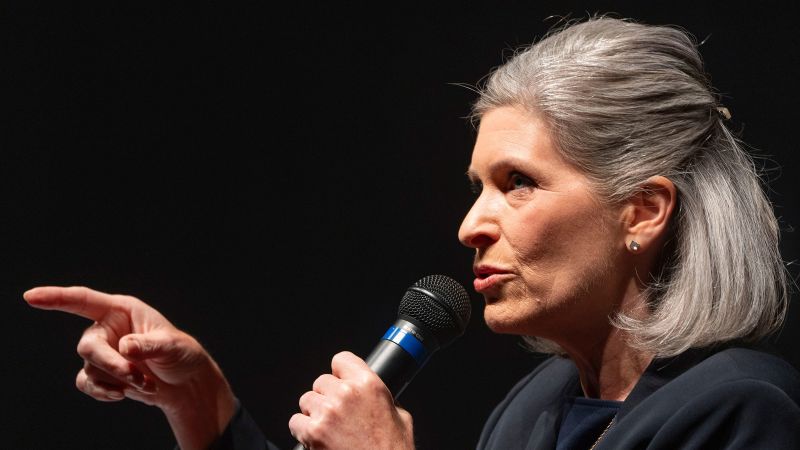The complexities of overhauling the American economy have historically posed significant challenges for politicians. One key reason for this difficulty lies in the intrinsic risk of creating economic winners and losers, alongside the inevitable short-term pain that often accompanies any substantial reform. The political ramifications of these disruptions can deter officials from pursuing extensive changes. Despite the potential benefits that a well-formulated plan might deliver, the fear of backlash from those adversely affected remains a formidable obstacle.
In recent times, this predicament has become painfully evident as President Donald Trump has initiated several ambitious economic overhauls. Republican leaders have had to grapple with the fallout from his controversial reforms, and they often face harsh criticism. One notable instance involved Senator Joni Ernst from Iowa, who during a town hall meeting encountered a provocative issue: the proposed cuts to Medicaid, a vital health care program for low-income Americans, included in the budget plan put forth by House Republicans. An audience member passionately expressed concern, stating, “people will die,” thereby highlighting the potentially disastrous consequences of these cuts.
Ernst’s response to this allegation diverged from typical political protocol. Rather than disputing the assertion or attempting to downplay the severity of the cuts by framing them as mere reductions in waste or fraud, she took a starkly different approach. By stating, “Well, we all are going to die,” Ernst’s comment reflected a troubling nonchalance towards the health implications of budget decisions, particularly as she prepares for her re-election campaign in 2026.
In the aftermath of this controversial remark, reaction from the audience indicated discomfort and discontent. Ernst, seemingly attempting to placate her critics, pleaded with the gathered crowd, saying, “For heaven’s sakes, folks.” Her office later defended her statement, asserting that their intent was to “strengthen” Medicaid. They emphasized the dual certainties in life: death and taxes, with claims that Ernst was dedicated to protecting taxpayer dollars while combating Medicaid fraud.
Following the backlash from her comments, Ernst issued a sarcastic apology via social media, stating, “I made an incorrect assumption that everyone in the auditorium understood that, yes, we are all going to perish from this Earth.” This ironic post highlighted her intention to address the crowd while downplaying the seriousness of their concerns. Meanwhile, Ernst continued to contend that her party was focused on protecting vulnerable populations that meet Medicaid eligibility requirements.
However, her assertions about undocumented immigrants receiving benefits did not align with the Congressional Budget Office’s projections. The CBO had indicated that under the proposed changes, millions of Americans would lose their health insurance, complicating Ernst’s narrative surrounding Medicaid cuts. This episode illustrates the broader difficulty Republicans face: addressing spending cuts without harming essential programs that benefit the most economically vulnerable Americans.
Political observers, including some of Trump’s own allies, have suggested that the party’s decisions could lead to major electoral difficulties. Multiple Republican leaders have stumbled during discussions about the economic fallout from Trump’s policies, often finding themselves trapped in awkward justifications. This unsteady footing was palpably evident when Trump noted the potential impact of tariffs on consumer goods, minimizing the strain on families by suggesting children might simply have fewer dolls.
Critics from within conservative circles, including Daily Wire founder Ben Shapiro, condemned such remarks as damaging to Republican electoral prospects. Moreover, Commerce Secretary Howard Lutnick made headlines when he trivialized complaints regarding social security checks, asserting that only “fraudsters” would complain about missing payments. This flippant dismissal of genuine grievances brought further scrutiny to the administration’s approach to financial programs that millions of Americans rely upon.
The narrative surrounding these incidents underscores the precarious nature of Trump’s economic reforms and their implications for the Republican Party. If recent exchanges are indicative of future engagements, then the party may frequently contend with uncomfortable dialogues that fail to resonate positively with the electorate. As debates surrounding crucial programs like Medicaid continue, it becomes increasingly apparent that finding an acceptable defense for cuts that affect millions may prove to be a daunting task for politicians in the years to come. The evolving dynamics suggest that awkward and defensive rhetoric may populate a significant portion of GOP discourse as they navigate these contentious waters, which can have enduring consequences on their political capital as they seek public support.











